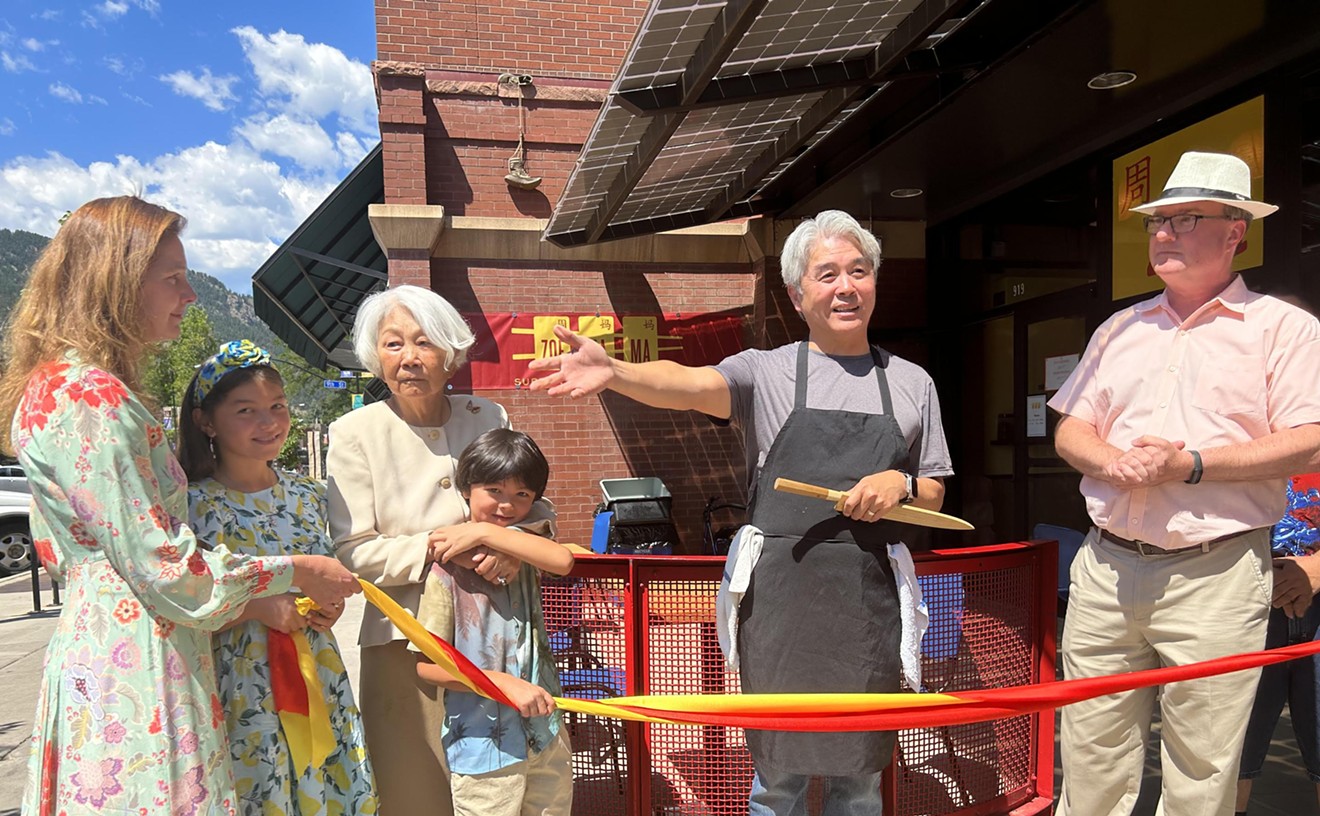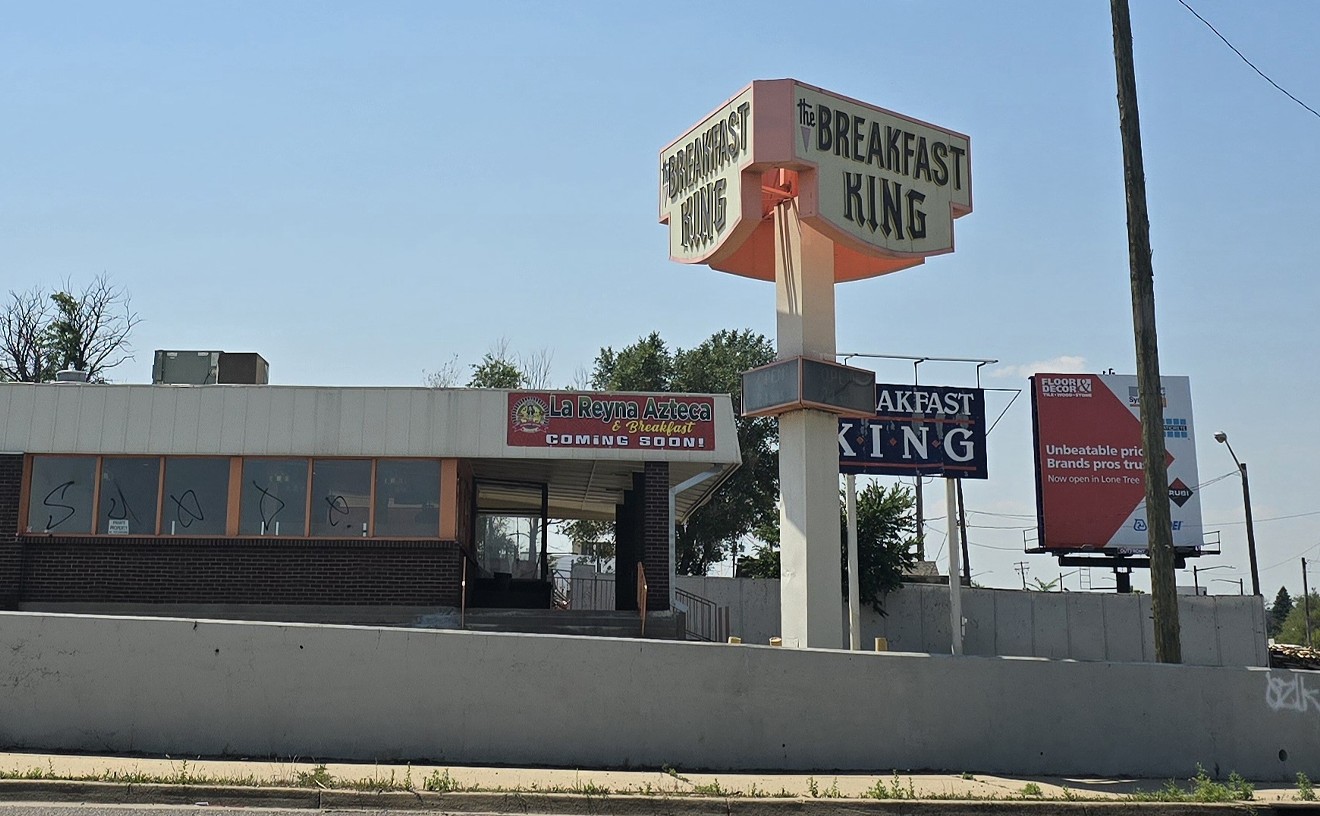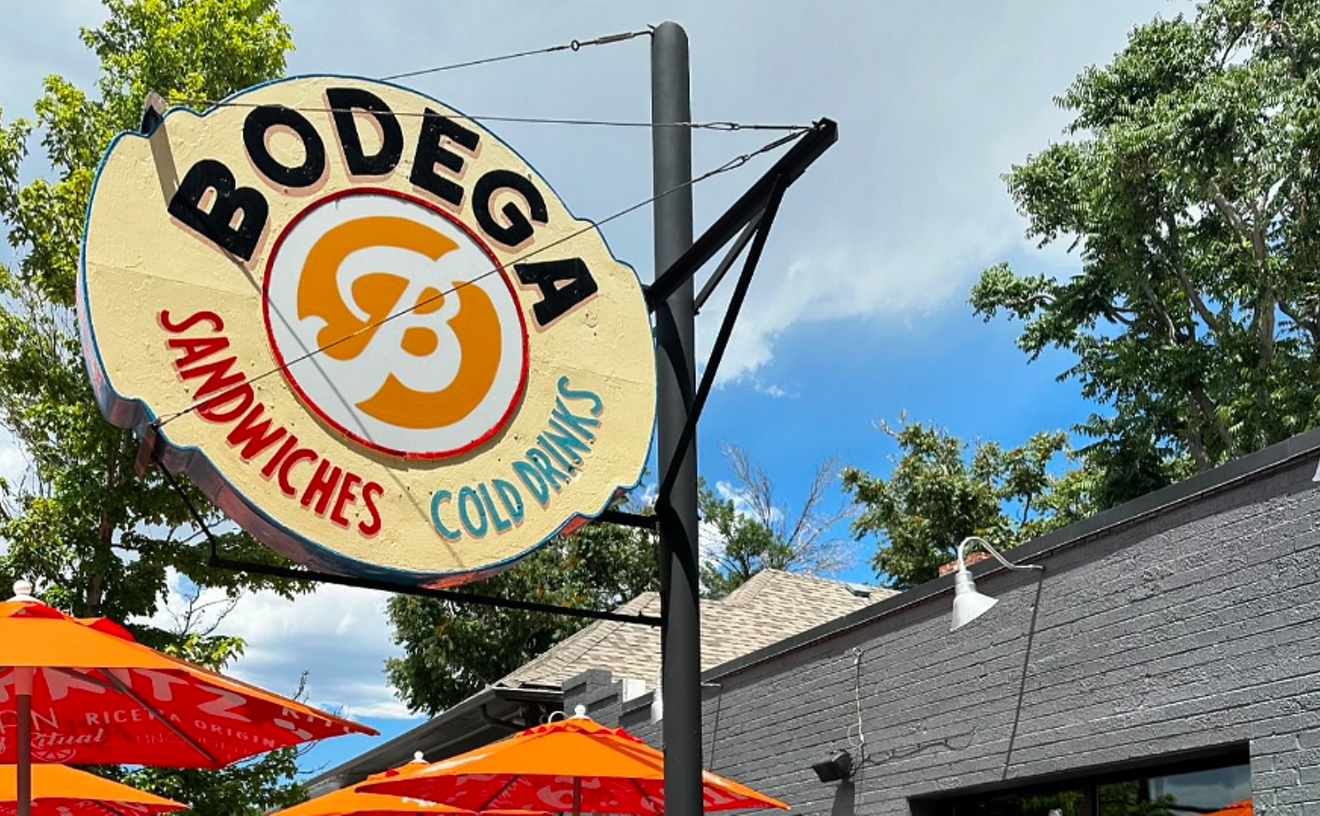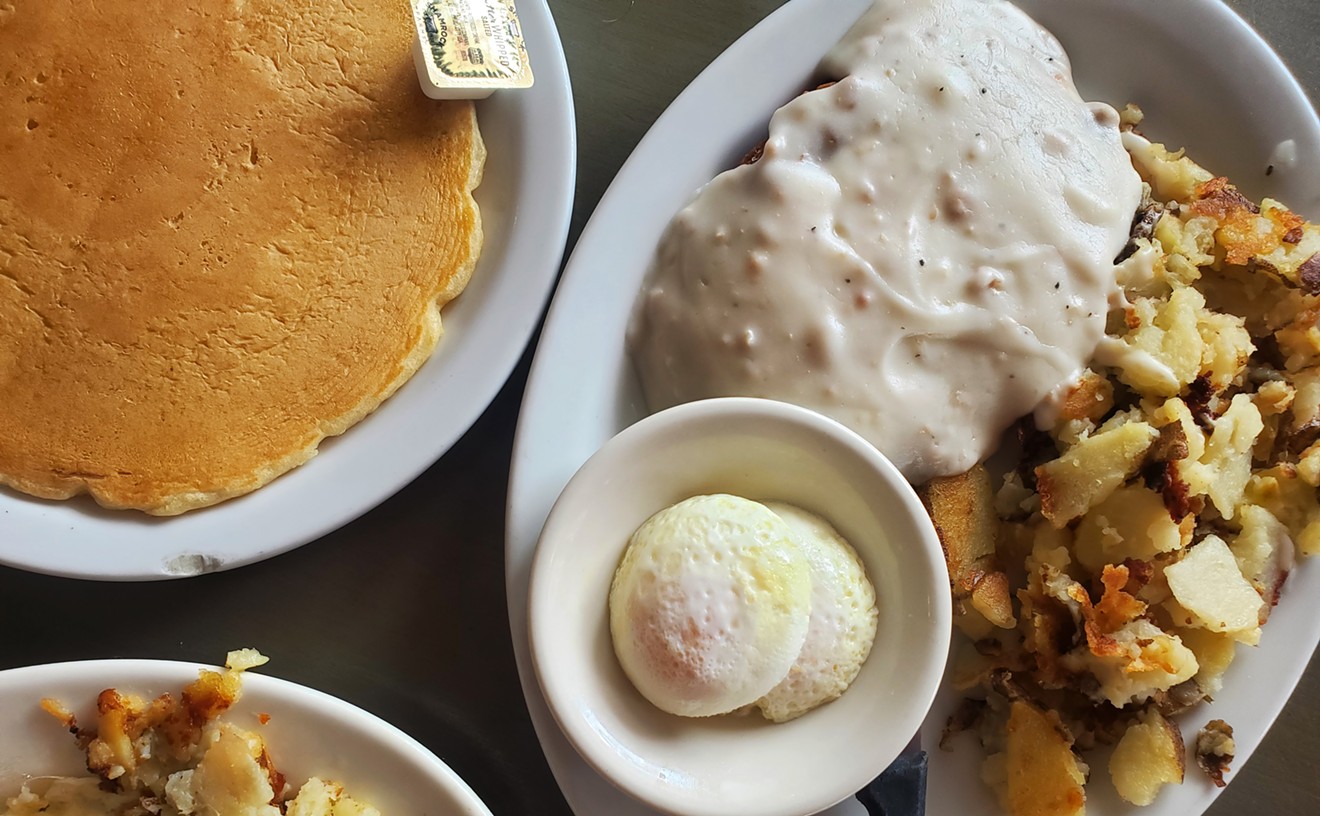As a cool breeze blows across Eric Skokan's land, the chef and farmer gears up for what could be the first frost of the season. Near the sheep fields, crates full of squashes — spaghetti, acorn, butternut and the trumpet-shaped tromboncino — line the shed, and over at his second farm, workers hurry to cover the vast tomato crops and rows of fragrant basil that Skokan hopes to save so that he can cook with fresh produce a little longer.
"We invest spectacular amounts of time and money and labor in the spring with an eye that we will bring in a good harvest that will sustain the restaurant through the winter," says Skokan, who owns Black Cat Bistro and Bramble and Hare in Boulder. "Seeing that incoming bounty is such a relief."
Already on Black Cat Farm, the chef and his crew have harvested about 20,000 pounds of squash and close to 5,000 pounds of tomatoes, as well as corn and black garbanzo beans. More is coming, if it survives the frost. With warming sheets covering the crops, Skokan is certain that most of the crops can get through this cold snap and keep the farm producing fresh goods a little longer. Or at the very least, he and his crew should be able to harvest thousands of pounds of end-of-season tomatoes. The twenty types of tomatoes will be dried or made into sauce, around 750 gallons of it, a winter kitchen staple that will keep Skokan's two restaurants stocked until spring.
"One of the joys in all of this is being closely tied to the seasons as they progress," says Skokan. "I love all those change-of-season milestones, from collecting the pumpkins and putting them in the barn [to] seeing arugula and sweet spinach come back. I love it just as much as seeing that first asparagus come up in the springtime."
Over in the southern field, two types of dent corn continue to ripen; later the large, white kernels will be dried and made into a fine corn meal that Skokan uses for polenta — a dish that tastes just like what his grandmother used to make, he says. Near the corn stalks, stretches of emerald-hued summer lettuces look inviting, but the chef says that they're past their prime and don't taste very good — so he plans to move one of his pig pens and let the young hogs have at it. While the teenage swine nibble away the leaves, the older Mulefoots and Herefords will take care of bruised and broken squash, barrels of spent grape skins from one of Skokan's winery friends, and whatever else isn't high-quality enough for the restaurants.
As for the good produce, many of these fruits and vegetables will eventually be used in dishes at Skokan's establishments in Boulder. A luscious tomato soup with fried green tomato garnish, for example, or end-of-season lettuce with tender duck, Tunis lamb with lentils and turnips, or ratatouille featuring roasted cabbage and butternut squash. The menu at Skokan's eateries change almost daily, reflecting the season and what's available.
As the weather turns cooler and the farm mostly shuts down for the winter, you can expect to see highlights from this last harvest in all sorts of forms, from fresh to dried to canned. All delicious and all as local as local can be.
[
{
"name": "Air - MediumRectangle - Inline Content - Mobile Display Size",
"component": "12017618",
"insertPoint": "2",
"requiredCountToDisplay": "2",
"watchElement": ".fdn-content-body",
"astAdList": [
{
"adType": "rectangle",
"displayTargets": "mobile"
}
]
},{
"name": "Editor Picks",
"component": "17242653",
"insertPoint": "4",
"requiredCountToDisplay": "1",
"watchElement": ".fdn-content-body",
"astAdList": [
{
"adType": "rectangle",
"displayTargets": "desktop|tablet"
},{
"adType": "rectangle",
"displayTargets": "desktop|tablet|mobile"
}
]
},{
"name": "Inline Links",
"component": "18838239",
"insertPoint": "8th",
"startingPoint": 8,
"requiredCountToDisplay": "7",
"maxInsertions": 25
},{
"name": "Air - MediumRectangle - Combo - Inline Content",
"component": "17261320",
"insertPoint": "8th",
"startingPoint": 8,
"requiredCountToDisplay": "7",
"maxInsertions": 25,
"watchElement": ".fdn-content-body",
"astAdList": [
{
"adType": "rectangle",
"displayTargets": "desktop|tablet"
},{
"adType": "rectangle",
"displayTargets": "desktop|tablet|mobile"
}
]
},{
"name": "Inline Links",
"component": "18838239",
"insertPoint": "8th",
"startingPoint": 12,
"requiredCountToDisplay": "11",
"maxInsertions": 25
},{
"name": "Air - Leaderboard Tower - Combo - Inline Content",
"component": "17261321",
"insertPoint": "8th",
"startingPoint": 12,
"requiredCountToDisplay": "11",
"maxInsertions": 25,
"watchElement": ".fdn-content-body",
"astAdList": [
{
"adType": "leaderboardInlineContent",
"displayTargets": "desktop|tablet"
},{
"adType": "tower",
"displayTargets": "mobile"
}
]
}
]











